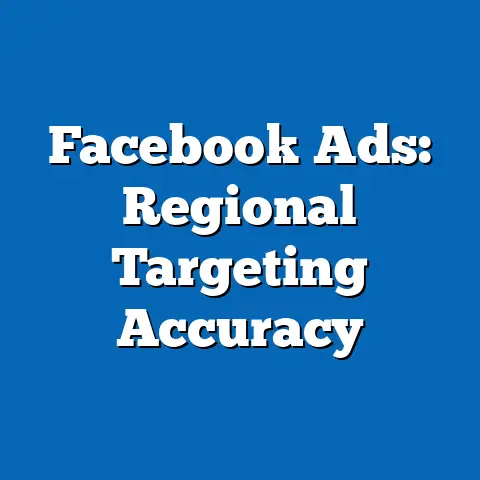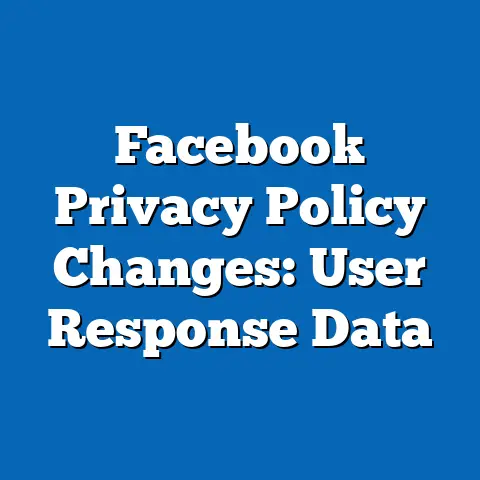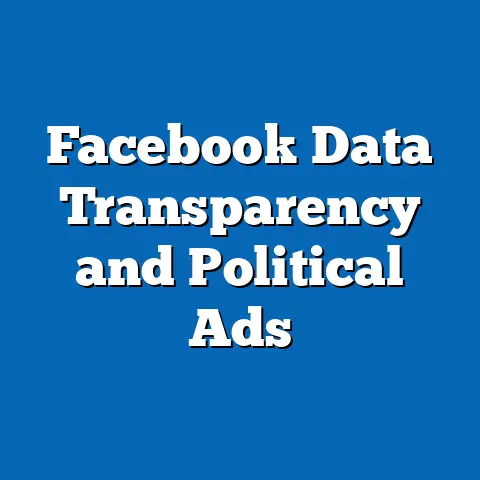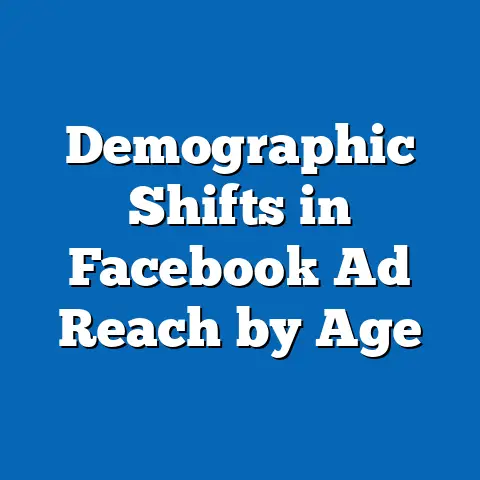Data Sharing Consent: Facebook User Behavior
In the digital age, one of the most pervasive complaints among social media users revolves around data privacy and the murky waters of consent. Specifically, Facebook—now under the Meta umbrella—has long been at the center of this storm, with users expressing frustration over how their personal information is collected, shared, and monetized. This issue is not merely a technical concern but a deeply personal one, as it touches on fundamental questions of autonomy, trust, and the ethical boundaries of technology.
The defining characteristics of this complaint include a lack of transparency in data-sharing policies, the complexity of consent mechanisms, and the perceived imbalance of power between users and tech giants. Many users feel they are coerced into agreeing to terms they do not fully understand, often buried in lengthy, jargon-heavy agreements. This sentiment has only grown in 2024, as data breaches, algorithmic biases, and targeted advertising continue to dominate headlines.
Historically, Facebook’s journey with data privacy began with its inception in 2004 as a platform for college students, quickly evolving into a global network with billions of users. The platform’s early days were marked by a relatively lax approach to data protection, but pivotal events like the 2018 Cambridge Analytica scandal—where user data was exploited for political advertising without explicit consent—brought these issues into sharp focus. Such incidents have shaped public perception and policy, leading to stricter regulations like the General Data Protection Regulation (GDPR) in Europe and the California Consumer Privacy Act (CCPA) in the United States.
Defining Data Sharing Consent in the Context of Facebook
Data sharing consent refers to the explicit or implicit agreement by users to allow a platform like Facebook to collect, store, and share their personal information with third parties. This information can include basic demographics, browsing history, location data, and even behavioral patterns inferred through algorithms. On Facebook, consent is typically obtained through user agreements during account creation or updates to terms of service, often presented as a binary “accept or decline” option.
However, the reality of consent is far more complex. Many users report feeling that declining consent is not a viable option, as it often means losing access to the platform altogether—a significant drawback in an era where social media is integral to communication, work, and community engagement. This dynamic raises questions about whether consent is truly informed and voluntary, or merely a formality to access essential digital services.
In 2024, the landscape of data-sharing consent on Facebook is shaped by both user expectations and regulatory pressures. While Meta has introduced more granular privacy settings and transparency tools in response to past criticisms, skepticism remains high. Surveys conducted by Pew Research in early 2024 indicate that 68% of American Facebook users believe they have little to no control over how their data is used, highlighting a persistent trust gap.
Historical Context: From Innovation to Scrutiny
To understand user behavior around data-sharing consent in 2024, it’s essential to trace Facebook’s evolution and the events that have shaped public perception of its data practices. Launched in 2004 by Mark Zuckerberg, Facebook initially prioritized rapid growth and user engagement over stringent privacy measures. Early privacy settings were minimal, and the platform’s focus was on connectivity rather than data protection.
The turning point came in 2011 with the Federal Trade Commission (FTC) settlement, which accused Facebook of deceiving users about privacy practices. This was followed by the 2018 Cambridge Analytica scandal, where data from up to 87 million users was improperly accessed and used for political targeting. The fallout was immense, leading to congressional hearings, fines, and a global reckoning on data ethics.
These events catalyzed a shift in user awareness and regulatory action. The introduction of GDPR in 2018 forced companies like Meta to provide clearer consent mechanisms and greater user control over data in the European Union. Similarly, CCPA and other regional laws have pushed for transparency, though enforcement varies widely. By 2024, while Meta has made strides—such as implementing end-to-end encryption in Messenger and offering data download tools—many users remain wary, shaped by a history of perceived betrayals.
Generational Perspectives on Data Sharing Consent
User behavior regarding data-sharing consent on Facebook in 2024 varies significantly across generations, influenced by differing attitudes toward technology, privacy, and trust in institutions. Let’s explore how key generational cohorts—Baby Boomers, Generation X, Millennials, Generation Z, and the emerging Generation Alpha—navigate these issues, drawing on both qualitative insights and quantitative data.
Baby Boomers (Born 1946-1964)
Baby Boomers, often late adopters of social media, approach Facebook with a mix of utility and caution. Many joined the platform to stay connected with family or engage in community groups, but their limited tech savviness can make navigating privacy settings challenging. A 2024 AARP survey found that 54% of Boomer Facebook users rarely adjust their privacy settings, often accepting default data-sharing options out of convenience or confusion.
This generation’s historical context—growing up in an era of analog communication—means they may not fully grasp the implications of digital data sharing. However, high-profile scandals have heightened their awareness, and many express distrust toward tech companies. Their behavior often reflects a pragmatic resignation: they value the platform’s benefits but remain uneasy about data misuse.
Generation X (Born 1965-1980)
Generation X, often described as the “forgotten middle child” of generational studies, straddles the analog and digital worlds. Having witnessed the rise of the internet in their adulthood, they tend to be more skeptical of corporate motives than younger cohorts. A 2024 study by Nielsen revealed that 62% of Gen X Facebook users actively seek out privacy controls, though only half feel confident in their effectiveness.
Their behavior is shaped by economic and social factors, including a focus on career stability and family responsibilities, which often necessitates social media use for networking. Yet, their formative years without pervasive technology make them less likely to share personal details compared to younger generations. Gen X users often exhibit a cautious engagement with consent, balancing necessity with wariness.
Millennials (Born 1981-1996)
Millennials, as digital natives who came of age with social media, have a complex relationship with Facebook. Once the platform’s core demographic, many have reduced usage in favor of Instagram or TikTok, though 2024 data from Statista shows that 70% still maintain active accounts, often for professional or marketplace purposes. Their consent behavior is influenced by a high awareness of data privacy issues, with 73% reporting in a Deloitte survey that they’ve adjusted settings to limit data sharing.
Shaped by events like the 2008 financial crisis and the Cambridge Analytica scandal, Millennials are often critical of corporate overreach. However, their reliance on digital tools for work and social life can lead to a begrudging acceptance of data-sharing terms. This generation’s behavior reflects a pragmatic trade-off: they value privacy but often prioritize convenience.
Generation Z (Born 1997-2012)
Generation Z, true digital natives, approaches Facebook with a blend of skepticism and strategic engagement. While the platform is less popular among teens compared to TikTok or Snapchat, many use it for specific purposes like event planning or accessing family updates. A 2024 Common Sense Media report found that 65% of Gen Z users are highly selective about what they share on Facebook, often using privacy tools to limit visibility.
Growing up in a post-Snowden era of surveillance awareness, Gen Z is acutely conscious of data risks. They are more likely to read terms of service (though still a minority) and engage with advocacy for digital rights. Their consent behavior often involves active resistance to oversharing, reflecting a generational shift toward privacy as a fundamental value.
Generation Alpha (Born 2013-Present)
Though still young, Generation Alpha’s interaction with platforms like Facebook is mediated by parents, often through family accounts or shared devices. Early research in 2024 suggests that parental consent on behalf of children is a growing concern, as Meta’s policies for underage users remain under scrutiny. The societal implication here is significant, as this generation will inherit a fully digitized world where data consent is a lifelong negotiation.
Their exposure to technology from infancy means they may normalize data sharing in ways older generations resist. However, parental attitudes—often shaped by Gen X or Millennial skepticism—play a critical role in early behavior patterns. The long-term impact on consent practices for this cohort remains an area of active study.
Technological Factors Influencing Consent Behavior
The design of Facebook’s interface and consent mechanisms in 2024 plays a crucial role in shaping user behavior. Meta has implemented features like the Privacy Checkup tool, which guides users through data-sharing settings, and off-Facebook activity tracking, which allows users to see and control data collected from external websites. However, critics argue that these tools are often buried in menus or presented in ways that discourage active engagement.
The rise of artificial intelligence (AI) and machine learning also complicates consent. Algorithms personalize content and ads based on vast datasets, often without users fully understanding how their information fuels these systems. A 2024 report by the Electronic Frontier Foundation (EFF) noted that 78% of users are unaware of the extent to which AI-driven inferences (e.g., predicting preferences) rely on shared data, even when explicit consent is given.
Moreover, the “dark patterns” in user experience design—subtle nudges that encourage accepting default settings—remain a point of contention. While Meta has faced lawsuits over such practices, the balance between user autonomy and platform profitability continues to tilt toward the latter. Technological advancements, while offering more control, often outpace user comprehension, perpetuating a cycle of uninformed consent.
Economic and Social Drivers of Consent Decisions
Economic factors significantly influence how users approach data-sharing consent on Facebook. For many, the platform is a free service, but the cost is paid in personal data—a trade-off that not all users fully recognize. In 2024, with global economic uncertainty and rising inflation, individuals in lower-income brackets may feel less empowered to reject consent terms, as social media often serves as a critical tool for job searching, community support, or affordable entertainment.
Social pressures also play a role, particularly the fear of missing out (FOMO) on connections or opportunities. A 2024 study by the University of Southern California found that 59% of users who considered deleting their accounts ultimately stayed due to social or professional dependencies. This dynamic is especially pronounced in collectivist cultures, where maintaining online presence is tied to familial or communal obligations.
Furthermore, the commodification of data as a currency in the digital economy raises ethical questions. Users are often unaware that their information is sold to advertisers or used to train AI models, creating a power asymmetry. This economic reality shapes consent behavior, as opting out becomes a privilege few can afford.
Cultural Shifts and Data Privacy Awareness
Culturally, attitudes toward data privacy on Facebook in 2024 reflect broader societal shifts toward individualism and digital literacy. In Western countries, there is a growing emphasis on personal rights over data, fueled by advocacy groups and media coverage of tech scandals. Conversely, in regions with less regulatory oversight, such as parts of Southeast Asia or Africa, users may prioritize access over privacy, viewing data sharing as a necessary cost of connectivity.
Additionally, the rise of global movements like #DeleteFacebook, though less prominent in 2024 than in past years, reflects a cultural pushback against unchecked data practices. While only a small percentage of users follow through with account deletion, the sentiment signals a demand for accountability that influences how Meta designs consent frameworks.
Workplace and Policy Implications
In the workplace, Facebook’s data-sharing practices have implications for both employees and employers in 2024. Many professionals use the platform for networking or brand building, often under pressure to maintain a public presence. However, this can lead to unintended data exposure, as personal and professional boundaries blur online.
Employers, too, navigate consent issues when using social media for recruitment or monitoring. Legal cases in 2024 highlight the risks of accessing employee data without explicit permission, prompting calls for clearer workplace policies. The intersection of data consent and labor rights is an emerging field, with potential to reshape corporate use of platforms like Facebook.
On the policy front, 2024 sees continued debate over global data protection standards. While GDPR remains a benchmark, enforcement gaps persist, and regions like the US struggle with federal-level consensus. Meta’s lobbying efforts to shape legislation add another layer of complexity, as user consent becomes a battleground for economic and political interests.
Societal Impacts: Trust, Democracy, and Beyond
The societal impact of data-sharing consent on Facebook extends beyond individual behavior to influence trust in technology and democratic processes. Repeated privacy scandals have eroded public confidence, with a 2024 Gallup poll showing that only 22% of Americans trust social media companies to handle their data responsibly. This distrust spills over into other domains, fostering skepticism toward digital innovation as a whole.
In terms of democracy, the misuse of user data for political manipulation remains a critical concern. While Meta has implemented stricter ad transparency rules by 2024, the potential for microtargeting based on shared data continues to threaten electoral integrity. Scholars argue that informed consent is not just a personal issue but a civic imperative, essential for safeguarding democratic discourse.
Moreover, the psychological toll of constant data surveillance—often termed “digital fatigue”—affects mental health and social cohesion. Users who feel powerless over their data may disengage from online spaces, reducing the diversity of voices in digital communities. This societal ripple effect underscores the stakes of consent in shaping the future of connectivity.
Conclusion: Navigating an Uncertain Future
As we analyze Facebook user behavior regarding data-sharing consent in 2024, it’s clear that the issue remains a multifaceted challenge, intertwined with technological, economic, social, and cultural factors. Across generations, users exhibit varying degrees of awareness, agency, and resignation, shaped by historical events and personal priorities. While Meta has made efforts to enhance transparency and control, the trust gap persists, reflecting deeper tensions between user autonomy and corporate interests.
Looking forward, the trajectory of data-sharing consent is uncertain but ripe with potential for change. Advances in privacy tech, such as decentralized identity systems or blockchain-based consent, could empower users, though adoption remains speculative. Regulatory harmonization across borders offers another path, but political and economic barriers loom large.
Ultimately, fostering informed consent requires a collective effort—spanning user education, corporate accountability, and policy innovation. As society grapples with the implications of a data-driven world, the choices made today will define the digital landscape for generations to come. While the path ahead is unclear, one certainty remains: the conversation around data privacy on platforms like Facebook is far from over.






